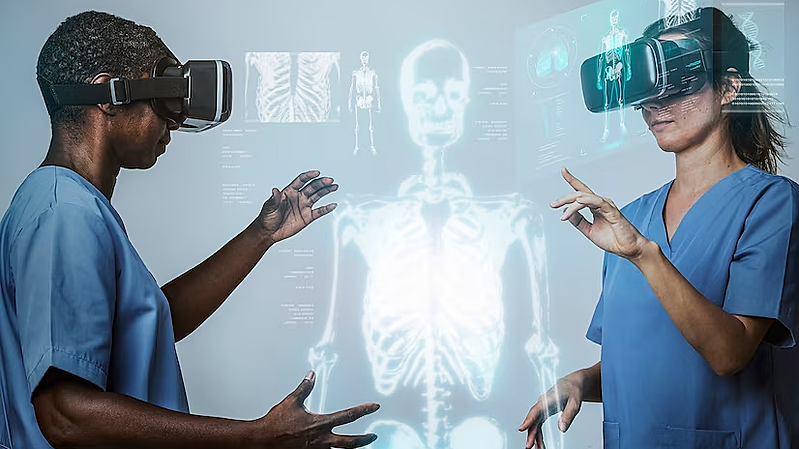Explore the transformative impact of AI on pharmaceutical and clinical applications. Learn how artificial intelligence is revolutionizing drug discovery, patient care, and healthcare diagnostics.
How AI Is Radically Reshaping Pharmaceutical And Clinical Applications
Artificial Intelligence (AI) has emerged as a groundbreaking technology with the potential to revolutionize various industries. The field of pharmaceuticals and clinical applications is no exception. The disruptive impact of AI on this sector is transforming traditional practices, leading to more efficient drug discovery, personalized medicine, and improved patient care.
AI technologies such as machine learning and natural language processing enable pharmaceutical companies to sift through vast amounts of data in a fraction of the time it would take humans.
This data-driven approach allows for various applications: quicker identification of potential drug targets, prediction of drug-drug interactions, and optimization of clinical trial protocols.
Moreover, AI algorithms can analyze patient data to identify patterns and predict treatment outcomes, facilitating personalized therapies tailored to individual patients. With the ability to process complex datasets rapidly and accurately, AI is poised to enhance decision-making processes in pharmaceutical research and clinical practice.
Enhancing Drug Discovery And Development With Ai
AI algorithms can efficiently analyze vast amounts of data, enabling researchers to identify potential drug targets and predict their efficacy with higher accuracy and speed. AI reduces the time-consuming and costly trial-and-error approach traditionally used in pharmaceutical research.
Moreover, AI-powered systems can sift through extensive databases of existing drugs, identifying potential candidates for repurposing or combination therapies. This not only accelerates the drug development process but also offers new treatment options for various diseases.
Furthermore, AI models can simulate complex biological processes more accurately than traditional methods. Researchers can use these simulations to understand how drugs interact with specific targets or predict adverse effects before conducting clinical trials.
Transforming Clinical Trials And Patient Care Through AI
By leveraging AI technologies, researchers are now able to optimize the entire clinical trial process. This leads to more efficient drug development. AI-powered algorithms can identify potential candidates for clinical trials with greater accuracy. This not only saves time but also ensures that patients who are most likely to benefit from a specific treatment are included in the trials.
AI can enhance patient care by enabling personalized medicine. By analyzing individual patient characteristics, such as genetic profiles or medical history, AI algorithms can predict treatment outcomes. These predictions help physicians tailor therapies specifically for each patient.
This targeted approach improves treatment efficacy while minimizing adverse effects. In summary, AI is transforming clinical trials by expediting drug development and improving patient selection.
Ethical Considerations And Challenges Of Ai In The Pharmaceutical Industry
AI brings forth several ethical considerations and challenges that need to be addressed. One significant concern is the potential bias in AI algorithms, which can lead to disparities in patient care. If these algorithms are trained on biased or incomplete datasets, they may perpetuate existing healthcare inequalities or result in incorrect treatment recommendations.
Another ethical challenge lies in the responsibility for decision-making. When AI systems make critical decisions regarding patient diagnosis or treatment plans, it becomes essential to determine who should be held accountable for any errors or adverse outcomes. This raises questions about liability and the need for clear guidelines and regulations. Moreover, the privacy and security of patient data become paramount when employing AI technologies.
Safeguarding sensitive medical information from unauthorized access or misuse is crucial to maintain public trust.

